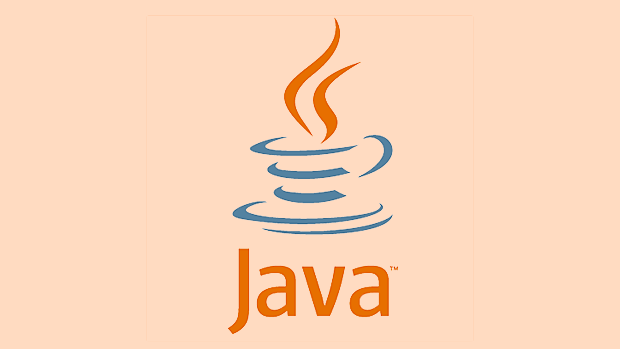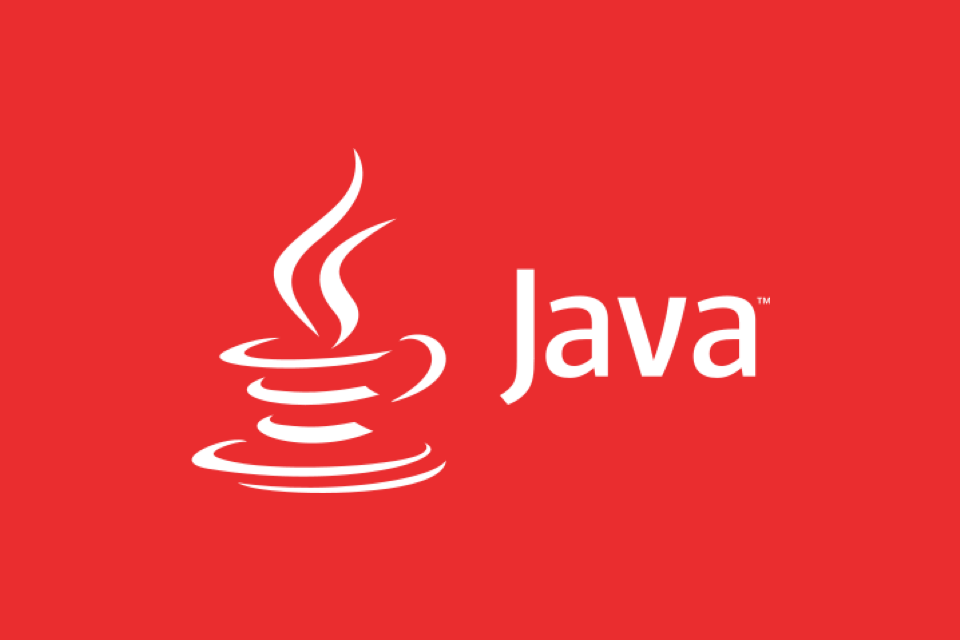Clean Code Principles Applied to Java Development
Jul 25, 2025 am 03:11 AMUse meaningful naming: variables such as int daysSinceModification; methods such as getUserRolesByUsername() to make the code intention clear; 2. Functions should be small and do only one thing: for example, createUser() is split into single responsibility methods such as validateRequest() and mapToUser(); 3. Reduce comments and write self-interpretation code: Use userHasPrivilegedAccess() instead of redundant comments; 4. Handle errors elegantly: do not ignore exceptions, use try-with-resources to automatically manage resources; 5. Follow the "Boy Scout Rules": optimize variable names, extract duplicate logic, delete useless codes, and continuously improve code quality.

Writing clean code isn't just about making your Java code work — it's about making it readable, maintainable, and scalable so that other developers (or future you) can understand it quickly and extend it confidently. Here's how core Clean Code principles translate directly into practical Java development:

1. Meaningful Names (Variables, Methods, Classes)
In Java, a poorly named variable like int d; or List a; forces others to guess what it does. Instead:
- Use intention-revealing names:
int daysSinceModification;,List<user> activeUsers;</user> - Avoid generic names like
data,manager, orprocessorunless the context is crystal clear. - Method names should read like verbs:
calculateTotal(),validateEmail(), notdoStuff()orprocessInput().
? Example :
Instead of:

public List<String> get(String s) { ... }Do:
public List<String> getUserRolesByUsername(String username) { ... }2. Functions Should Be Small and Do One Thing
A Java method should ideally fit on one screen and have a single responsibility. If you see multiple levels of abstraction (eg, reading from DB formatting response logging), extract methods .

? Good:
public User createUser(CreateUserRequest request) {
validateRequest(request);
User user = mapToUser(request);
return userRepository.save(user);
} Each helper method ( validateRequest , mapToUser ) does one clear thing — and the main method reads like a story.
3. Minimize Comments — Write Self-Documenting Code
Comments often lie or become outdated. In Java, prefer expressive code over explanation comments:
- Replace
// Check if user is activewithif (user.isActive()) - Use private methods to clarify logic instead of inline comments.
? Avoid:
// If user role is admin or manager, allow access
if ("ADMIN".equals(role) || "MANAGER".equals(role)) { ... }? Better:
if (userHasPrivilegedAccess(role)) { ... }
private boolean userHasPrivilegedAccess(String role) {
return "ADMIN".equals(role) || "MANAGER".equals(role);
}4. Handle Errors Gracefully — Don't Ignore Exceptions
Java's checked exceptions force you to think about error handling — use that to your advantage:
- Never do
catch (Exception e) {}— silent failures are bugs waiting to happen. - Throw meaningful custom exceptions when needed:
throw new UserNotFoundException("User with ID " userId " not found"); - Use try-with-resources for automatic cleanup:
try (FileInputStream fis = new FileInputStream(file)) { // auto-closed }
5. Follow the Boy Scout Rule: Leave the Code Better Than You Found It
Every time you touch Java code — whether fixing a bug or adding a feature — improve its clarity:
- Rename confusing variables
- Extract duplicated logic into reusable methods
- Remove unused imports or dead code (
// TODO:that's 3 years old?)
This isn't just hygiene — it prevents technical debt from snowballing.
Bottom line : Clean Java code feels obvious. It doesn't surprise you. It respects time — yours and others'. These principles aren't theoretical — they're daily habits that make your team faster and your systems more robust. Start small: next time you write a method, ask: "Would another dev understand this in 6 months?" If not, reflector.
That's how clean code becomes culture — not just code.
The above is the detailed content of Clean Code Principles Applied to Java Development. For more information, please follow other related articles on the PHP Chinese website!

Hot AI Tools

Undress AI Tool
Undress images for free

Undresser.AI Undress
AI-powered app for creating realistic nude photos

AI Clothes Remover
Online AI tool for removing clothes from photos.

Clothoff.io
AI clothes remover

Video Face Swap
Swap faces in any video effortlessly with our completely free AI face swap tool!

Hot Article

Hot Tools

Notepad++7.3.1
Easy-to-use and free code editor

SublimeText3 Chinese version
Chinese version, very easy to use

Zend Studio 13.0.1
Powerful PHP integrated development environment

Dreamweaver CS6
Visual web development tools

SublimeText3 Mac version
God-level code editing software (SublimeText3)
 VSCode settings.json location
Aug 01, 2025 am 06:12 AM
VSCode settings.json location
Aug 01, 2025 am 06:12 AM
The settings.json file is located in the user-level or workspace-level path and is used to customize VSCode settings. 1. User-level path: Windows is C:\Users\\AppData\Roaming\Code\User\settings.json, macOS is /Users//Library/ApplicationSupport/Code/User/settings.json, Linux is /home//.config/Code/User/settings.json; 2. Workspace-level path: .vscode/settings in the project root directory
 How to handle transactions in Java with JDBC?
Aug 02, 2025 pm 12:29 PM
How to handle transactions in Java with JDBC?
Aug 02, 2025 pm 12:29 PM
To correctly handle JDBC transactions, you must first turn off the automatic commit mode, then perform multiple operations, and finally commit or rollback according to the results; 1. Call conn.setAutoCommit(false) to start the transaction; 2. Execute multiple SQL operations, such as INSERT and UPDATE; 3. Call conn.commit() if all operations are successful, and call conn.rollback() if an exception occurs to ensure data consistency; at the same time, try-with-resources should be used to manage resources, properly handle exceptions and close connections to avoid connection leakage; in addition, it is recommended to use connection pools and set save points to achieve partial rollback, and keep transactions as short as possible to improve performance.
 Mastering Dependency Injection in Java with Spring and Guice
Aug 01, 2025 am 05:53 AM
Mastering Dependency Injection in Java with Spring and Guice
Aug 01, 2025 am 05:53 AM
DependencyInjection(DI)isadesignpatternwhereobjectsreceivedependenciesexternally,promotingloosecouplingandeasiertestingthroughconstructor,setter,orfieldinjection.2.SpringFrameworkusesannotationslike@Component,@Service,and@AutowiredwithJava-basedconfi
 python itertools combinations example
Jul 31, 2025 am 09:53 AM
python itertools combinations example
Jul 31, 2025 am 09:53 AM
itertools.combinations is used to generate all non-repetitive combinations (order irrelevant) that selects a specified number of elements from the iterable object. Its usage includes: 1. Select 2 element combinations from the list, such as ('A','B'), ('A','C'), etc., to avoid repeated order; 2. Take 3 character combinations of strings, such as "abc" and "abd", which are suitable for subsequence generation; 3. Find the combinations where the sum of two numbers is equal to the target value, such as 1 5=6, simplify the double loop logic; the difference between combinations and arrangement lies in whether the order is important, combinations regard AB and BA as the same, while permutations are regarded as different;
 python pytest fixture example
Jul 31, 2025 am 09:35 AM
python pytest fixture example
Jul 31, 2025 am 09:35 AM
fixture is a function used to provide preset environment or data for tests. 1. Use the @pytest.fixture decorator to define fixture; 2. Inject fixture in parameter form in the test function; 3. Execute setup before yield, and then teardown; 4. Control scope through scope parameters, such as function, module, etc.; 5. Place the shared fixture in conftest.py to achieve cross-file sharing, thereby improving the maintainability and reusability of tests.
 Understanding the Java Virtual Machine (JVM) Internals
Aug 01, 2025 am 06:31 AM
Understanding the Java Virtual Machine (JVM) Internals
Aug 01, 2025 am 06:31 AM
TheJVMenablesJava’s"writeonce,runanywhere"capabilitybyexecutingbytecodethroughfourmaincomponents:1.TheClassLoaderSubsystemloads,links,andinitializes.classfilesusingbootstrap,extension,andapplicationclassloaders,ensuringsecureandlazyclassloa
 How to work with Calendar in Java?
Aug 02, 2025 am 02:38 AM
How to work with Calendar in Java?
Aug 02, 2025 am 02:38 AM
Use classes in the java.time package to replace the old Date and Calendar classes; 2. Get the current date and time through LocalDate, LocalDateTime and LocalTime; 3. Create a specific date and time using the of() method; 4. Use the plus/minus method to immutably increase and decrease the time; 5. Use ZonedDateTime and ZoneId to process the time zone; 6. Format and parse date strings through DateTimeFormatter; 7. Use Instant to be compatible with the old date types when necessary; date processing in modern Java should give priority to using java.timeAPI, which provides clear, immutable and linear
 Google Chrome cannot open local files
Aug 01, 2025 am 05:24 AM
Google Chrome cannot open local files
Aug 01, 2025 am 05:24 AM
ChromecanopenlocalfileslikeHTMLandPDFsbyusing"Openfile"ordraggingthemintothebrowser;ensuretheaddressstartswithfile:///;2.SecurityrestrictionsblockAJAX,localStorage,andcross-folderaccessonfile://;usealocalserverlikepython-mhttp.server8000tor






